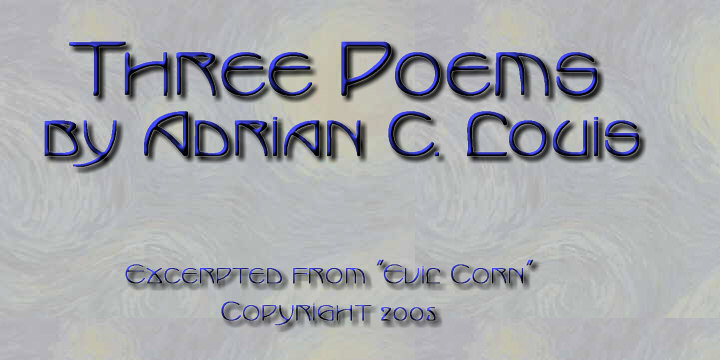|
Moving
from Point A to Pointless
One year
before the millennium, the fat American sun spits shards past
the cedars and through my K-Mart Venetian blinds. A spirit voice
on AOL Instant Messenger is using the magic word LOVE.
This voice knows I love another who is dancing with a terminal
disease, but this voice is desperate, confused, and Christ, it
confesses to wanting to gobble my gonads over the Internet! I
tell it pain lives around that corner. The spirit voice begs me
to run from responsibility, asks me to apply to teach in its
city. It thinks I'll do great—wants me to go from the
minor leagues to Cooperstown. If that is love, it is an aberrant
love. Sometimes I think I'm being stalked, but I like it.
This
goes on for more than a year and I come to see there's nothing
on earth so painful, so pitiful as middle-aged lonely lust.
Okay, I tell the voice, I love you, too. Pathetic.
Man, I am pathetic and more than twelve years sober, talking to
a voice whose body I've yet to see. Nevertheless, I mail my
résumé to its sparkling school on the Pacific
coast, but at the last minute I accept a harvesting job at the
College of the Corn, deep in the deadlands of Minnesota, a day's
drive from bleak glyphs I've clawed onto the Dakota of memory.
|
Evil
Corn
My
first few months in Minnesota, I listen to a Public Radio
performer pimping a perfidious, nasal patter of prairie
companionship, and I can't help but wonder what hairless planet
he's nattering from. Okay, on the surface, it's safe here. Life
is ordered. No stone-heart urban thugs a'dancing. No fearsome
city noise to start the ears a'bleeding. But something about the
place gives my bones the heebie-jeebies. Left to the sun and
rain, this land of quaint squares of dark soil sprouts a bright
uniform green from road to road that murders anything natural.
Gone are the tall grass prairies, vanished are the native trees,
and corralled are the once-feathered Indians. Evil corn and its
masters have murdered this land.
I wake to
my first harvest in southwest Minnesota and see that corn, the
basic grain, the light of dark Indian stomachs for millennia,
has transformed from a life sustainer to a life destroyer. When
I tell a friend the corn is now evil, she titters and whispers,
“Oxymoron.” Transplanted city folk at the college
say how glad they are to be away from cities and in “the
country,” but this place is not “the country”
even though a green blanket shrouds the four sacred directions.
This is subjugated land, strangely industrial and rural at the
same time. Corn and soy fields rotate on alternating years. The
corn here is tall and imposing, but it is not the same creature
Squanto planted and spoon-fed the loony pilgrims with. This is
not the corn of the Zuni shalako, and it's not the Diné
holy giver of pollen.
This
is not the corn I scratched into the dry dirt of my childhood.
This is mutant flora, a green American Frankenstein born of
chemicals and greed. It is lucre bound for the sweet tooth of
America in the form of corn syrup, for our car gas tanks as
ethanol, and as fodder for the stomachs of cattle. These cobs,
genetically altered and pesticide soaked, cornhole all that is
sacred.
In
dreams, I recognize the sacred, have always tried in my profane
way to bow to the sacred, but waking decades of hand-to-mouth
survival have nearly blanched all holiness from my soul. Despite
my occasional frothing, a typically generic American consumer
lives in my mirror. Yet I reside in an ancient farmhouse
surrounded by evil corn. Green death rises from this bad-heart
land where I've brought my cats and dogs. We're exiled to a
toxic hell where the laughing devils of necessity have chased
us, five hundred miles form the dying woman we love. Do not pit
my animal friends or me. Pity the sallow and linear pimps who
greedily grow green the destruction of our ancestors and their
natural world.
|
 Milking
The Nightmares
Milking
The Nightmares